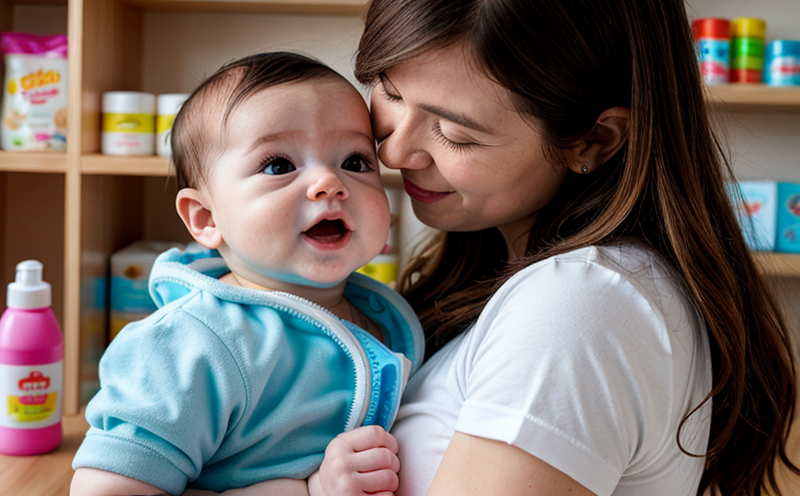Cords and Elastics for Toys Strength Test
In the realm of consumer products testing, particularly within the category of baby products, ensuring the safety and durability of toys is paramount. One critical aspect that demands meticulous attention is the strength test for cords and elastics used in toys intended for infants and young children. This test ensures these components do not pose a risk of entanglement or choking.
The primary purpose of this strength test is to evaluate whether the cords and elastics can withstand potential stress without breaking, which could lead to accidents. Manufacturers must adhere to strict international standards such as ASTM F963, EN 71, and IEC 62196-2, all of which mandate rigorous testing procedures.
During this test, specimens are subjected to defined pulling forces using specialized equipment designed for such evaluations. The force is gradually increased until the cord or elastic fails. The breaking point must be documented accurately, and any failure at a point other than the designated area indicates that the product does not meet safety requirements.
For accurate testing, the materials used in baby products like cords and elastics should undergo thorough preparation before being subjected to this strength test. This involves cleaning the specimens according to predefined protocols to ensure no external contaminants interfere with the results. Proper handling is crucial as even minor variations can lead to misleading outcomes.
The equipment utilized for these tests must be calibrated regularly to guarantee precision and reliability of measurements. Calibration ensures that every test conducted adheres to industry standards, providing consistent and accurate data. Given the critical nature of this testing, it's essential that laboratories adhere strictly to prescribed procedures outlined in relevant international standards.
The results from such strength tests are vital for manufacturers who aim to ensure their products meet regulatory requirements and consumer expectations. These findings also help in identifying potential design flaws or material weaknesses early on, allowing for necessary adjustments before the product reaches market.
Understanding how these tests contribute to overall toy safety is crucial not only for compliance officers but also for quality managers and R&D engineers involved in developing new products. By focusing on these aspects during the design phase itself, manufacturers can significantly enhance the safety features of their toys without compromising functionality or aesthetics.
In conclusion, conducting thorough strength tests on cords and elastics used in baby products is an indispensable step towards safeguarding children's health and well-being. Compliance with international standards ensures that these tests are conducted uniformly across different regions, fostering trust among consumers globally.
Eurolab Advantages
At Eurolab, we pride ourselves on offering comprehensive testing services tailored specifically to meet the stringent requirements of various industries. Our expertise in baby products testing extends beyond just conducting strength tests for cords and elastics; our team also provides a wide range of other essential services that contribute significantly towards ensuring product safety.
- State-of-the-art equipment calibrated according to international standards
- Experienced technicians with deep knowledge in relevant regulations
- Accurate and reliable testing results delivered promptly
- Comprehensive support for all stages of product development, from initial concept through final production
We understand the importance of maintaining high standards throughout every step of the process. By leveraging our extensive experience and cutting-edge facilities, we can offer you peace of mind knowing that your products are being tested rigorously against applicable international guidelines.
International Acceptance and Recognition
- ASTM F963: Ensures toys meet requirements for mechanical strength, flammability, and other physical characteristics relevant to baby products.
- EN 71: Provides detailed specifications regarding the safety aspects of materials used in toys, including those that may come into contact with children's mouths.
- IEC 62196-2: Covers specific requirements for electrical components within electronic toys and their associated accessories.
The acceptance of these standards varies across countries, but they are widely recognized globally. Countries that do not have equivalent domestic regulations often adopt or align their own laws with one or more of these internationally accepted norms.
Environmental and Sustainability Contributions
In addition to ensuring product safety, Eurolab is committed to supporting sustainability efforts. By adhering to strict testing protocols that minimize waste generation during trials, we play a part in promoting eco-friendly practices within the industry.
We encourage manufacturers to consider sustainable materials and manufacturing processes when developing baby products. Our expertise can guide them towards more environmentally friendly options while still meeting all necessary safety standards.





